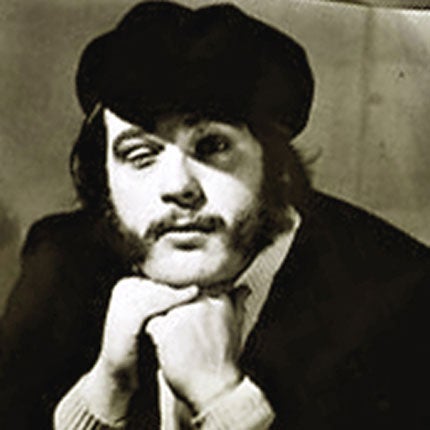Invisible Ink: No 79 - Fergus Gwynplaine MacIntyre

Your support helps us to tell the story
From reproductive rights to climate change to Big Tech, The Independent is on the ground when the story is developing. Whether it's investigating the financials of Elon Musk's pro-Trump PAC or producing our latest documentary, 'The A Word', which shines a light on the American women fighting for reproductive rights, we know how important it is to parse out the facts from the messaging.
At such a critical moment in US history, we need reporters on the ground. Your donation allows us to keep sending journalists to speak to both sides of the story.
The Independent is trusted by Americans across the entire political spectrum. And unlike many other quality news outlets, we choose not to lock Americans out of our reporting and analysis with paywalls. We believe quality journalism should be available to everyone, paid for by those who can afford it.
Your support makes all the difference.Don't believe anything you read about Fergus "Froggy" MacIntyre, tweedily-dressed, bushy-haired, shambling man-mountain.
This journalist, poet, artist, and bon viveur recently burned himself to death in a cluttered, filthy Brooklyn apartment. A Rabelaisian character who reckoned he was born in Scotland and raised in Australia, he developed an English accent but was probably from New York. His three wives and two adopted children have not been found, his name was swiped from a Victor Hugo story, his age was unknown and most anecdotes about him are contradictory.
This much is true; in 1994 he wrote a well-received steampunk thriller called The Woman Between The Worlds, but only managed to follow it with a volume of light poetry called MacIntyre's Improbable Bestiary. He was intelligent but undisciplined, loved resurrecting rare words and coining new ones, wrote good sci-fi and fantasy short stories, book reviews, articles and crime tales, but was best at creating himself.
He said he suffered from synaesthesia, a condition in which the senses become confused, but there's no reason to assume this was true either. MacIntyre's manufactured persona evoked an English clubman's background, but the kind that is found mainly in old novels. He wore white gloves, claiming everything from torture to webbed fingers, but did it to cure chronic nail biting.
In the literary world, the louche, book-carrying fantasist-writer is a familiar figure. He turns up at festivals and conventions with bags full of old paperbacks, and usually behaves badly enough for others to remember him, possibly fighting with a more successful author. These are the writers who love books too much, who are full of ideas and want to take the literary world by storm, but who lack the discipline and tenacity to do so.
MacIntyre enjoyed starting feuds, and one of them ended with the female neighbour who used to carry out his endless bags of rubbish being tied to a chair, shaved and sprayed black. Delightful eccentricity had now given way to a damaged mental state. His career followed a downward spiral and he lost his job working nights in Manhattan as a printer. There were unusual characteristics; he was a conservative, and blogged about his pending suicide, ending with the words "Straight on till mourning", a punning allusion to Peter Pan. Unlike Kyril Bonfiglioli, whose pose as a flâneur perfectly matched his elegant prose, Froggy allowed his constructed image to eclipse his talent.
Join our commenting forum
Join thought-provoking conversations, follow other Independent readers and see their replies
Comments